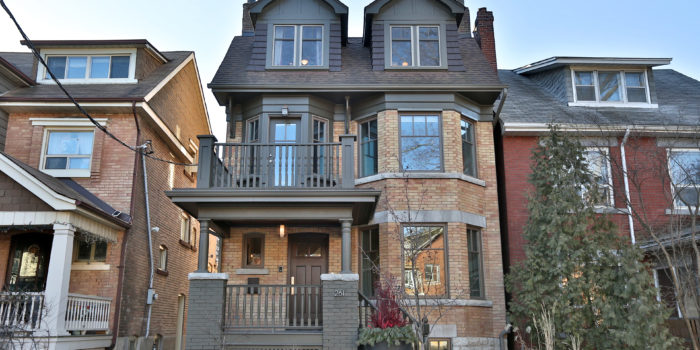
Ch-ch-ch-changes: How the GTA’s Real Estate market will perform after recent interventions
It’s rare to check the news these days without hearing about a new effort to cool Canada’s red hot housing market. From Foreign Buyer Taxes, to new mortgage stress tests, to closing off tax loop holes; Federal and Provincial governments are looking at ways to keep Real Estate appreciation sustainable and reduce volatility in an industry that can have a drastic impact on the Canadian economy.
B.C. 15% Foreign Buyer Tax (August 2016):
B.C.’s recent implementation of a foreign buyer tax resulted in decreased sales activity across the province particularly with regards to single family homes. The Greater Vancouver Area HPI index indicates home prices increased 24% y/y, but that sales decreased by 38% from October 2015. As inventory builds from the 38% reduction in sales, prices are certain to experience downward pressure which should translate to decreased appreciation rates in 2017.
After B.C.’s foreign tax implementation, all eyes turned to the Ontario Government who continues to show reluctance to implement any such tax. Kathleen Wynne’s most recent comments reinforce her belief that the markets are very independent and that her focus will be on helping first time buyers. I think they would be remiss not to expect some of this foreign investment from B.C. to shift to Ontario and cause upward pressure on the GTA and Ontario’s housing prices. While the Ontario government is taking time to decide on their approach, enter Bill Morneau and the Federal Government with the following changes:
- Expanding mortgage rate stress test to all insured mortgages.
- The government is launching consultations on lender risk sharing.
- As of November 30th, the government will impose new restrictions on when it will provide insurance for low-ratio mortgages. For more on these read here.
- Tax Loop Hole Closed (Not really). For more read here.
Stressed out
The federal government has implemented new changes that are designed to reduce the risk associated with an overheated Canadian housing market. While I applaud the government’s continued efforts to help reduce volatility in the housing market, I think it’s unlikely to have the desired impact on the GTA where the supply just can’t keep up with the demand. Reducing the purchasing power of those with limited down payments certainly won’t improve affordability. The new rule has buyers with less than 20% down being stress-tested at the Bank of Canada’s posted mortgage rate which is currently about 4.64%, about 2-2.5% higher than what mortgage lenders are offering. The idea being that borrowers will qualify for what they can handle should interest rates increase, and while this isn’t a bad move, it does mean a reduced purchasing budget for those who do not have 20% down. My estimation is that the new regulation change will impact 15% of Buyers, and while this should help reduce unsustainable year/year 20% appreciation rates, it alone is not enough to completely shift the market, at least not in the GTA.
So how can we expect these changes to impact Toronto and the GTA’s residential real estate market?
Buying Opportunity between $850,000 – $1M: The most recent rule change is likely, at least in the short term, to have the biggest impact on the $850,000-$1M price range, and should lead to more favourable purchasing conditions in this category. With an estimated 15% of these buyers purchasing power being reduced, they will now be forced to look in a lower price point. However, unlike other price segments, there won’t be any buyers from higher ranges to fill the void. Buyers purchasing over $1M are already required to have a minimum of 20% down and are not subject to mortgage insurance and won’t be impacted by the new stress test regulations. The number of Buyers in this price segment should be reduced in the $850,000-$1M range, so we should see reduced competition in this segment.
The Condo Alternative: Reducing Buyers purchasing power will force them to look at a more affordable product, and in Toronto, that will mean condos, for some, smaller condos. Those buyers whose purchasing power has been reduced, but would rather get in the market than hand over their pay cheque to a landlord will be forced to look at alternative products. For many this will mean switching from Freehold to Condo. This is likely to stimulate some additional price growth in Toronto’s condo market.
Rental Markets to Benefit: Reducing the purchasing power of first time buyers is going to turn some of the would-be purchasers to renters, creating greater demand for rental units in and around the city. This will reduce turnover and vacancy rates for landlords, and put upward pressure on rental prices. However, we are seeing more purpose built rental units going up in the city which could help to balance out this impact.
Price growth in the more affordable neighbourhoods: October’s Detached home prices in the 905 region are up 30% on a year over year basis, so those intent on purchasing will be forced to look in lower priced areas they may have been originally hoping to avoid, Hello South Oshawa! Under valued market segments are likely to continue to see strong appreciation as Buyers seeking single family homes will be forced to look at low priced neighbourhoods across the GTA.
